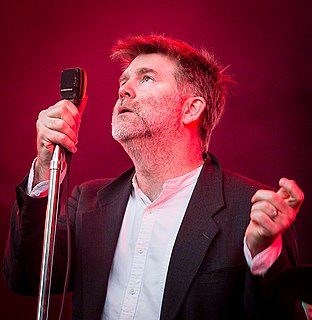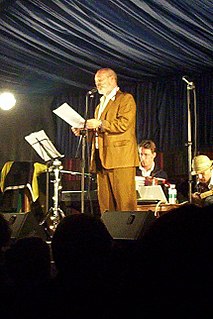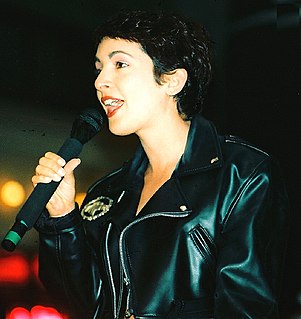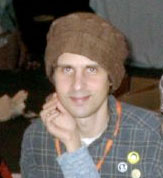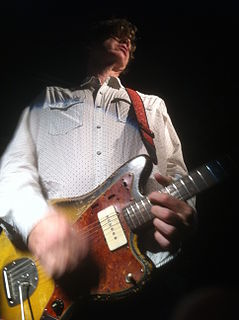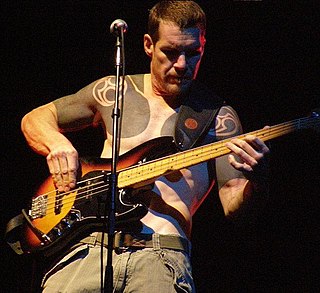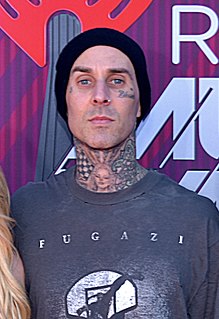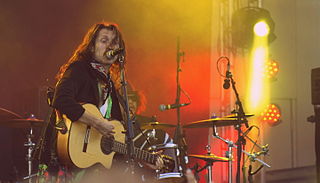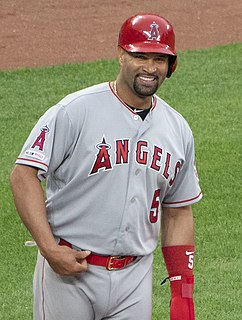A Quote by Michael Stipe
I had to get a driver's license and drive to St. Louis to find the punk-rock scene that was happening there. And there was a punk-rock scene. It was sweet. It was real. It was like everywhere else in the county. It was a handful of people who were feeling the same pull, and, of course, it was like the Island of Misfit Toys in Rudolph the Red-Nosed Reindeer [1964]. Just the freaks, the fags, the fat girls, the unbelievable eccentrics .
Related Quotes
The 1970s was probably the most exciting decade to be a teenager, from discovering Little Richard at the end of the 1960s to glam rock to punk rock to electro music. So much happened in that 10-year span. There were so many musical revolutions. Some were happening at the same time. You had disco going on behind punk. You had Michael Jackson. You had the Sex Pistols.
Punk changed everything. It blew away all the dull, pompous stuff that happened before, like glam rock. Kids were getting involved in causes like Rock Against Racism and they needed music that reflected that. Something similar was happening in comedy too, with the Comedy Store and the alternative scene that I got involved in.
The whole punk scene is, of course, responsible for the Go-Go's ever getting created. Because before punk rock happened, you couldn't start a band if you didn't know how to play an instrument. But when punk happened it was like, 'Oh, it doesn't matter if you can play or not. Go ahead, make a band.' And that's exactly what the Go-Go's did.
Punk rock was the first thing I found in my life that made me feel acceptable. The thing that got me into punk rock was the idea, "You're fine just the way you are." It sounds kind of dorky, but you don't have to make excuses for who you are or what you do. When you find something like punk rock, not only is it okay to feel that way - you should embrace your weirdness. The world is totally messed up, and punk rock was a way to see that and work with it without candy-coating it. It was saying, "Yeah, the world is this way, but you can still do something about it. Take energy from that."
The whole point was just to be yourself, no matter what that was. You didn't have to fit into a certain punk-rock cliché. Create whatever your compelled to create. People were putting out their own records, and it just seemed natural to put out my own magazine. When I was really young, I started making magazines and little books, just folded-over pieces of typing paper, so when I discovered punk rock, it really blew my mind. I played in bands and stuff, but making my own zines seemed like an inherent part of that scene.
My first passion was running: I excelled at that starting till the end of the high school. I pretty much cover about 20 miles a night on stage. I basically rechanneled all the athleticism and adrenaline, and everything that's exciting about sports into music. That was my secret weapon, because in Ukrainian punk rock scene - where everything was very gloomy - being athletic was not cool. I didn't publicize anything about my sport past, but I rolled in onstage with a background nobody had, and I became instantly recognized as the wildest performer in the punk-rock scene.
My vision of punk rock was these dudes who were spitting on the audience and moshing. That's why I kind of left that scene. Then I see all these people around my same age or between 17 and 25 that were making music themselves in their own town. They weren't just singing, but creating. I see them putting out this music where there are tons of women involved in the scene and involved in the bands.
Do I want to be in St. Louis forever? Of course. People from other teams want to play in St. Louis, and they're jealous that we're in St. Louis because the fans are unbelievable. So why would you want to leave a place like St. Louis to go somewhere else and make $3 million or $4 more million a year? It's not about the money.

